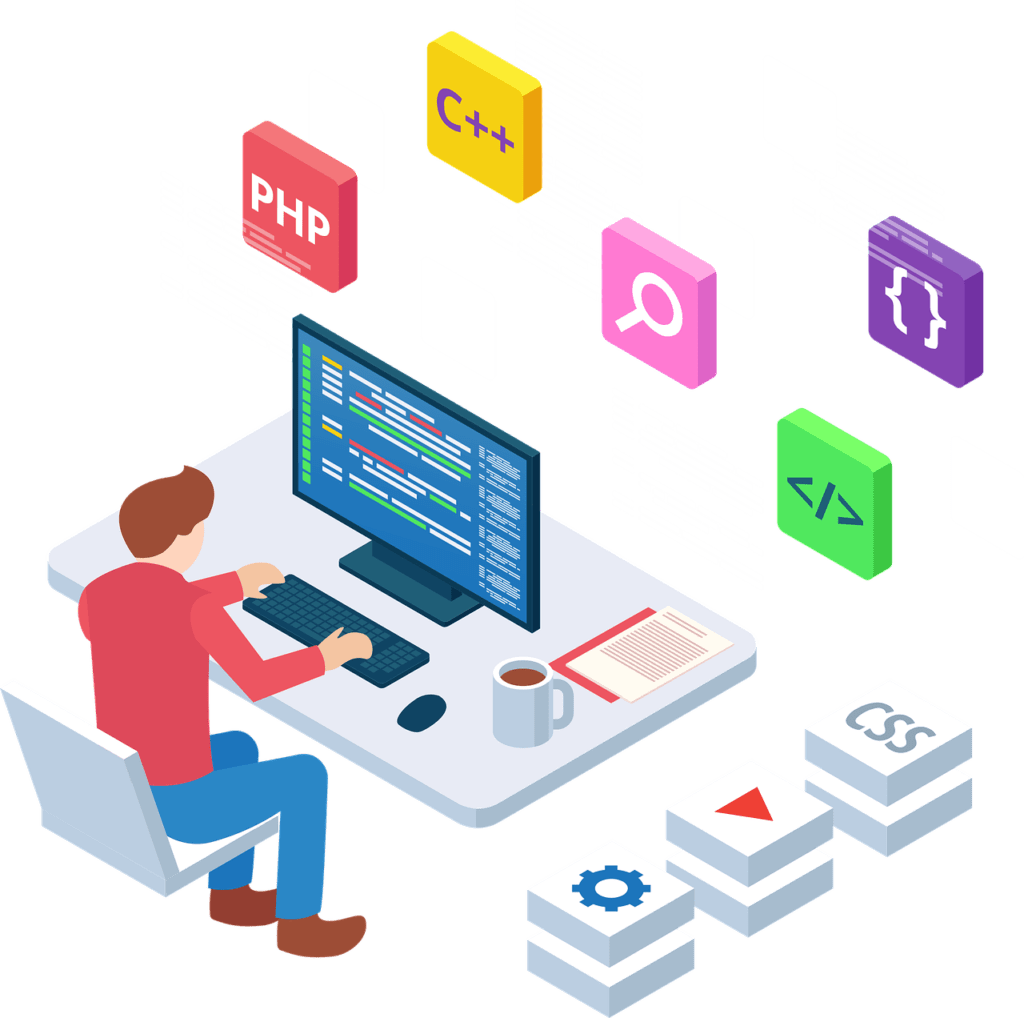Web development is a profession that is simple to pick up without any training or schooling at all. After some practical study and practice, you may start right away and have a functional grasp of how to create a website. If you are eager to learn, there’s nothing that can stop you to become a web developer on your own.
The challenge is figuring out where to start. Anyone can learn how to code one line of HTML, but it takes more skill to build a website that users would find useful. It’s also a little trickier to follow all the regulations that govern web development. We’ve gathered all the information you’ll need to get started right here for your convenience to understand, what web development is, and how you can become one!
What Does A Web Developer Do?
A website can be created by a team or a single person, but it must at least have a web developer. Most web developers are in charge of the website’s speed and capacity in addition to making sure it is aesthetically pleasing and simple to browse.
You might work as a freelance web developer taking on projects for one-on-one clients or for a business or firm. Your responsibilities will vary based on your work environment, but typical daily tasks could include:
- Creating user interfaces and menus for navigating
- Composing and evaluating website code, usually in XML, JavaScript, or HTML
- Solving issues with user experience or performance
- Cooperating with designers, stakeholders, and developers
- Incorporating multimedia into a website
- Web application testing

How Much Does A Web Developer Earn?
It’s important to understand what kind of pay you can anticipate as a web developer as well as how simple it will be to get employment. A developer typically earns $60k to $75k annually.
Naturally, the salary will vary depending on the languages and technologies you choose to work with, whether you freelance or have regular employment, and your degree of experience, most importantly.

Types Of Web Development
All web developers fall into one of three categories:
1. Back-End Developer
A back-end developer is a web developer who works on the “server-side” of websites. This focuses on the functionality of a website and may include networks, hosting, databases, servers, and other things.
2. Front-End Developer
A Front-End Developer focuses on the “client-side” of web development, which includes any part of the site or app with which users interact. This might include the design, layout, and user interaction with a site.
3. Full Stack developer
Full-stack engineers do both front-end and back-end development tasks. These developers are knowledgeable enough to design a whole web and may work with firms that do not have the money for a huge website staff.
Skills Required To Become A Web Developer

Here are some of the key technical skills every web developer must have:
Technical SEO
The search engine ranking of a website can be impacted by a variety of design elements. A developer’s job benefits from knowing how search engines rank websites.
Coding
For front-end design, popular programming languages include, cascading style sheets, HTML, PHP, and JavaScript. If you want to work in back-end programming, you might wish to study Python, Java, or Ruby.
Version Design
This enables you to monitor and manage source code modifications rather than having to start over each time you encounter a challenge.
Business Skills Required To Become A Web Developer

Attention to Detail
According to McRoberts, it is vital for web developers to pay close attention to detail. Because one minor mistake might damage a whole website, he believes web developers have a very small margin for error when it comes to launching a new site or page.
Excellent Communication Skills
To guarantee that everyone’s goals are grasped through the website, web developers must collaborate with many members of an organization. It is critical to keep lines of communication open and to be able to interpret technical jargon into layman’s language for other team members.
Problem-solving Nature
When creating websites, web developers frequently encounter problems. They must be able to see issues with the coding or design and use a methodical approach to fixing them.
Website Development Fundamentals (Practical Steps)

These are some of the most effective practical methods to become a web engineer without a typical high-school/university degree.
Web Development Course
Formal education is not always required to work as a web developer. You can learn the necessary abilities on your own. You may enroll in a programming school to study JavaScript, CSS, or HTML, and then use what you’ve learned to create your own website.
Make Your Portfolio
When applying for web development employment, your greatest weapon is a captivating web developer portfolio that highlights your finest talents.
Your portfolio must have the following things:
- A variety of web development projects should be included in your Web Developer portfolio.
- Your professional portfolio shouldn’t include every project you’ve ever worked on; instead, it should be a highlight reel of your greatest work that also illustrates your adaptability.
- You want to be selective and emphasize your greatest work, but your choice should be sufficiently varied to show that you have a thorough knowledge of all the requirements for the job.
- Make sure your portfolio is shown on a perfect website. Employers are examining your problem-solving methodology, so don’t be hesitant to present each issue as a case study.
- Additionally, this is an excellent chance for you to show off your communication abilities.
Get Certification
Getting certified can demonstrate to potential employers that you have the necessary skills. There are a variety of alternatives available, both generic and vendor-specific, such as:
- Zend Certified PHP Engineer
- Adobe Certified Expert (ACE)
- Amazon Web Services (AWS)
- Microsoft Certified Solutions Associate (MCSD)
Final Thoughts
Web development is a fantastic career choice for those who enjoy learning new things and are willing to take responsibility for their own education. Professionals working in web development are required to continuously seek out new skills and keep up with emerging trends. You can start by using these tips and information. Keep learning and growing and one day you’ll become the best in your field!








